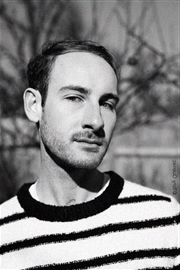Tutor HuntResources Piano Resources
Remembering To Breathe
A reflection on the benefits of learning to play the piano.
Date : 08/07/2013
Author Information

Uploaded by : Jonathan
Uploaded on : 08/07/2013
Subject : Piano
A few years later I was, in some strange form, living out my undergraduate dream: I was in Iceland making a piece of theatre with a group of artists with whom I had formed a company, which was to be premiered in Reykjavik before a run at a theatre in London. We had been working intensively for weeks and the content of the performance was all there, the final tasks in the process were those belonging to composition, form and structure. And in one of many long dramaturgical discussions I found myself asking the group, "Where does the performance breathe?" Though this question seemed simple, even obvious to me, my collaborators were perplexed. It was clear that the logic I was employing was not one they shared with me. Upon reflection, I remembered a childhood piano teacher who had always told me to "breathe" between the phrases in a piece of music. "Breathe!" He would shout with frustration every time I rushed clumsily from one section into another, before forcefully scribbling his favourite word in capitals onto the appropriate part of the manuscri pt. His concern was, of course, not for the health of his student`s lungs but for the necessary space between one musical idea and the next, giving them presence, allowing them to breathe.
Learning to play the piano is a wonderful thing in its own right: for the immediate pleasure of playing for oneself or delighting friends with your favourite Chopin waltz, or even a note-perfect Amy Winehouse cover. My point in this anecdote is, however, that to learn to play a musical instrument is to learn about a hundred things, things that unfold and reveal themselves in the most secretive ways and under the most surprising circumstances. I have been told (admittedly, by a musician) that musicians make good drivers because of the co-ordination that is required to play a musical instrument. I am quite certain that musicians make good anythings (at least, they are evidently adept at making up words!) I wonder if we were to take a talented chef and teach her to play the flute, would the delicate flavours of her signature dish sing all the more sweetly? I like to imagine that they would. And I`d like to add (coda) that the lessons of a great piano teacher extend far beyond the old ivories.
This resource was uploaded by: Jonathan
